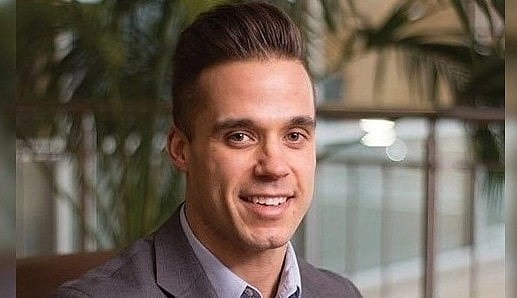Digital Transformation
(US & Canada) VIDEO | Service Delivery Is a Differentiating Factor for Us — Home City Ice CIO
Chris Hickok, CIO at Home City Ice, speaks about technology as an enabler, role of product managers, the EOS framework, employee retention and customer satisfaction, and leveraging Generative AI.
Written by: CDO Magazine Bureau
Updated 6:29 PM UTC, Fri August 11, 2023

(US & Canada) Chris Hickok, CIO at Home City Ice, speaks with Patrick Haller, VP of Sales and Marketing at Computer Products Corp. (CPC) in a video interview, about technology as an enabler, vertical integration, route optimization, role of product managers in a heavy product model, implementing EOS framework, innovation for employee retention and customer satisfaction, and leveraging Generative AI for business benefits.
At the onset, Hickok acknowledges the power of technology to bring about simple solutions with significant results. He rewinds the clock to 15 or 20 years, reminiscing on how far businesses have come in terms of having less reliance on analog and paper-based processes.
He reveals that Home City Ice is now focused on taking existing solutions and supercharging them. The firm is in a unique place, which Hickok refers to as vertical integration, due to which the organization manages everything from the point of manufacturing to direct store delivery.
Further, Hickok views innovation as a way to make teams more efficient. The department focuses on the logistics space, such as route optimization algorithms, automatic scheduling of drivers and trucks, and better planning for demand, to make people more efficient.
Hickok shares that the organization believes in commission, so if someone is productive, they get a share of the wealth. He further describes the arrangement as something that ties the managers, drivers, and production process together. As a result, when all the sectors experience mutual gains, the whole business moves forward.
Citing optimization, Hickok states that the organization has been able to reduce carbon footprints, increase driver productivity, and address the lack of fuel and maintenance by optimizing routes.
Thereafter, Hickok emphasizes moving to a product-heavy model wherein the company recruits product managers in each business vertical who actively partner with the organizational employees and engage with consumers. He explains that product managers speak to the development and executive teams, and gather organizational wants and needs from the bottom up.
In addition, the organization connects with customers to understand their pain points and prioritizes solving them. Hickok stresses that involving people in the processes makes a difference and constant engagement in the business is the key.
Furthermore, he states that the company has implemented the Entrepreneurial Operating System framework this past year. It is a strategic-planning framework but it goes beyond that and includes various cadences, meetings, milestones, and checklists to evaluate where the company is headed. It offers a level of discipline that is often lacking in companies.
Next, Hickok recalls how the recent labor crunch took a toll on convenience stores, as vendors had empty shelves and beverage cases due to a lack of drivers. Increasing driver productivity worked as a solution for the organization.
Explaining further, he shares how the organization came up with innovations to provide a better customer experience and make drivers as productive as possible. Consequently, Home City Ice implemented digital customer-facing technologies, eliminating the need for manual cash handling, thus increasing each driver’s productivity by 10 to 15%.
Highlighting the need for constant innovation, Hickok states that service delivery is a differentiating factor in the industry. He confirms that services are not equal as the firm has been able to gain ground among competitors by implementing certain strategies. Home City Ice has reached a point where the same input derives massive output, thus delivering service as per customer expectations.
“Technology has become a massive strategic and competitive driver for us.”
Chris Hickok | CIO at Home City Ice
Hickok reckons technology has become a massive strategic and competitive driver in this scenario. Thereafter, he insists that the users are still new to the framework, and it has allowed them to work together more efficiently than ever before. However, it requires more practice to make it an “automatic type of thing.”
Moving ahead, Hickok expresses his interest in seeing what Generative AI can do for business from an innovation and technology standpoint. He opines that Generative AI has the potential to be transformative, like the major networking technologies of the past.
In conclusion, he discusses integrating data with generative AI technologies and mentions using Natural Language queries to access enterprise data. Hickok states that the ability to use Generative AI will increase businesses’ ability to use data.
CDO Magazine appreciates Chris Hickok for sharing his insights with our global community.


